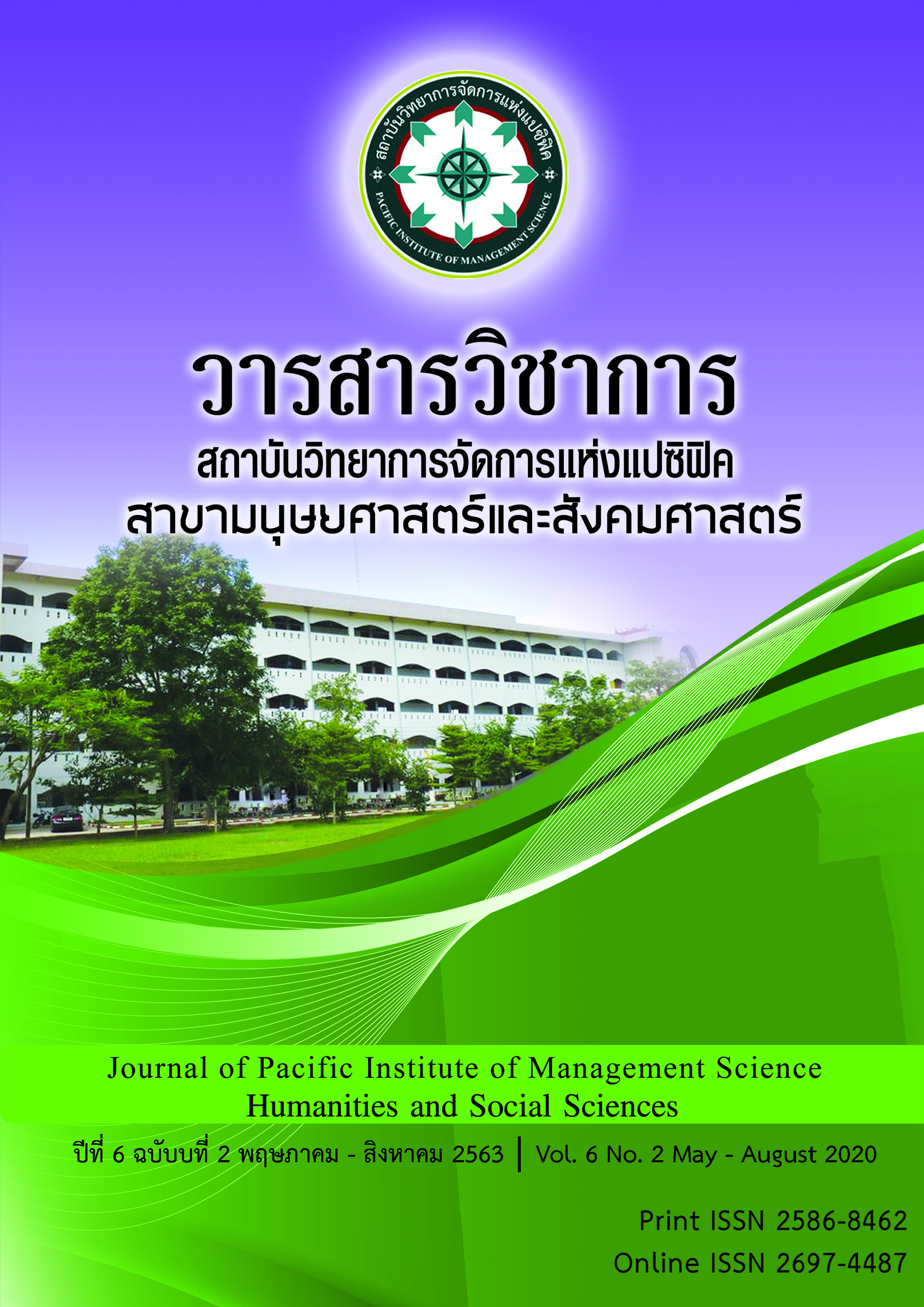Analysis of Xin Tai Financial Fraud
Keywords:
Financial Fraud, Theory of Fraud Risk Factors, Financial Statement Analysis Prevention and ControlAbstract
The purposes of this study were to; 1) study the way Xintai Electric conducted Financial Fraud. 2) study the approach to prevent Financial Fraud.
The sample consisted of the financial fraud case of Xintai Electric, the first company in the Growth Enterprise Market (GEM) market that was forced to withdraw from the market after the China Securities Regulatory Commission issued the Delisting Opinion.
The instruments used for gathering data were the main financial indicators used in the analysis come from Xintai electric financial statements and annual reports.(financial statements publicly issued by listed companies)Then analyze through collection and arrangement.
The research results were the lack of legal awareness of the integrity of the company's internal managers. In order to go on the market and to keep the market after the market, it is due to the performance of the company in order to protect the city. Counterfeiting is not easy to find, and the punishment is very low after being discovered. All factors combined together make Xintai Electric successfully cheat. Finally, aiming at the emergence of fraud, according to the motivation of fraud, we put forward some measures, such as strengthening moral quality construction, introducing external supervisors, high reputation independent directors, implementing audit rotation system and improving illegal costs.
References
Albrecht. Accounting education: charting the course through a perilous future [J].Journalof Government Financical Management,2005,32(1):87-89.
Bartov. Discretionary-accruals models and audit qualification[J].Journal of Accountingand Economics,2000,30(15):421-452.
Beneish, M.D.1999. The Detection of Earnings Manipulation[J].Financial Analysts Journal,2005,12(5):24-36.
Beck Mauldin. Who is really in charge? Audit Committee VS CFO Power and AuditFees[J].The Accounting Review,2014, 89(6):2057-2085.
Ciccotello, Alam. Does the location of directors matter? Information acquisition and board decisions[J]. Journal of Financial and Quantitative Analysis,2014,49(1):131-164
Cohen, Hoitash, Wright. The effect of audit committee industry expertise on monitoringthe financial reporting process[J].The Accounting Review,2013, 89(1):243-273.
Grovernan, Friedman. How Auditors Can Detect Financial Statement Misstatement[J].Journal of Accountancy, 2015,18(6):83-86.
Jiandong Chen, Douglas Cumming, WenxuanHou, Edward Lee. Executive integrity,audit opinion, and fraud in Chinese listed firms[J].Emerging Markets Review,2013,16(5):72–91.
Jiambalvo. Incidence and circumstance of accounting errors [J].The Accounting Review,1991,28(6):66-67.
Ortiz Molina. Do Voting Rights Affect Institutional Investment Decisions[J].FinancialManagement, 2008, 37(3): 713-745.
PankajSaksena. The relationship between environmental factors and management fraud:an empirical analysis[J].International Journal of Commerce&Management,2001,13(1): 120-139.
Ross Sharapov. When the leader follows: avoiding dethronement through imitation[J]. Academy of Management Journal ,2015,58(3):658-679.
Summers, S.L. & Sweeney, J.T. Fraudulent Misstate Financial Statements and InsiderTrading: All Empirical Analysis[J]. The Accounting Review, 2015,23(2):131-146.
Shawver. Predicting management fraud in IPO companies[J]. Management AccountingQuarterly,2009,21(12):22-26.
Treadway. Fraud commission issues final report [J]. Journal of Accountancy,1997,13(3) 121-126.
Wells. Irrational rations [J]. Journal of Accountancy,2001,12(4):24-32.
Warfield TD, John J Wild, Kenneth L Wild. Accounting choices and informativeness of earnings[J]. Managerial Ownership,1999,14(3):113-115.
Downloads
Published
Issue
Section
License
บทความที่ได้รับการตีพิมพ์เป็นลิขสิทธิ์ของ สถาบันวิทยาการจัดการแห่งแปซิฟิค
ข้อความที่ปรากฏในบทความแต่ละเรื่องในวารสารวิชาการเล่มนี้เป็นความคิดเห็นส่วนตัวของผู้เขียนแต่ละท่านไม่เกี่ยวข้องกับสถาบันวิทยาการจัดการแห่งแปซิฟิค และคณาจารย์ท่านอื่นๆในสถาบันฯ แต่อย่างใด ความรับผิดชอบองค์ประกอบทั้งหมดของบทความแต่ละเรื่องเป็นของผู้เขียนแต่ละท่าน หากมีความผิดพลาดใดๆ ผู้เขียนแต่ละท่านจะรับผิดชอบบทความของตนเองแต่ผู้เดียว







